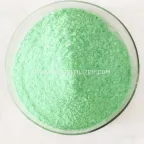What are Water Soluble Fertilizers
Water-soluble fertilizers are a type of fertilizer that dissolves easily in water, forming a uniform solution that can be applied to plants through irrigation or foliar spray. These fertilizers are composed of mineral nutrients that plants need for their growth and development. The main advantage of water-soluble fertilizers lies in their quick and efficient nutrient absorption by plants.
Key Characteristics of Water-Soluble Fertilizers:
Solubility: Water-soluble fertilizers are designed to dissolve readily in water, creating a clear and uniform solution. This characteristic allows for easy mixing and application, either through traditional irrigation systems or as a foliar spray directly onto the leaves.
Nutrient Composition: These fertilizers typically contain a balanced combination of essential plant nutrients, including nitrogen (N), phosphorus (P), and potassium (K), as well as secondary and micronutrients like calcium, magnesium, sulfur, iron, manganese, zinc, and others. The precise nutrient composition can vary based on the specific formulation and the intended needs of different plants.
Quick Nutrient Availability: Water-soluble fertilizers provide an immediate source of nutrients to plants. Once dissolved in water, the nutrients are readily available for absorption by plant roots or through foliar uptake. This quick availability is especially beneficial during critical growth stages when plants have high nutrient demands.

Precision and Control: The use of water-soluble fertilizers allows for precise control over nutrient concentrations in the solution. This precision is valuable in tailoring the nutrient supply to meet the specific requirements of different crops, soil conditions, or growth stages. It enables growers to adjust fertilization programs more flexibly.
Versatility in Application: These Shuanglian fertilizers are versatile and can be applied through various irrigation methods, such as drip irrigation, sprinkler systems, or hydroponic systems. Additionally, they can be used as foliar sprays, providing a direct and rapid uptake of nutrients through the leaves.
Reduced Risk of Nutrient Imbalances: With careful management, water-soluble fertilizers can help prevent nutrient imbalances in the soil. By adjusting the concentration of each nutrient in the solution, growers can tailor the fertilizer application to the specific needs of their crops, minimizing the risk of over-fertilization or deficiencies.
Storage and Transportation: Water-soluble fertilizers are often available in a dry, granular or powdered form, making them easy to store and transport. The concentrated nature of these fertilizers reduces the volume and weight compared to traditional bulkier solid fertilizers.
Environmental Considerations: When used correctly, water-soluble fertilizers can contribute to more efficient nutrient utilization, reducing the potential for nutrient runoff into water bodies. This can be particularly important in environmentally sensitive areas where water quality is a concern.
In conclusion, water-soluble NPK fertilizers offer a convenient and efficient way to provide essential nutrients to plants, promoting healthy growth and maximizing crop yields. Their solubility, precision in nutrient delivery, and versatility in application methods make them a valuable tool for modern agricultural practices, horticulture, and greenhouse cultivation.
- Previous: What is zirconium phosphate used for?
- Next: What is RDP powder used for?


